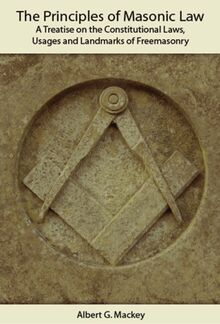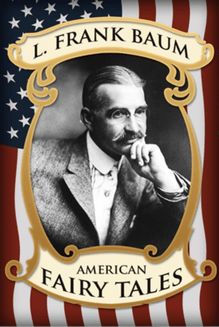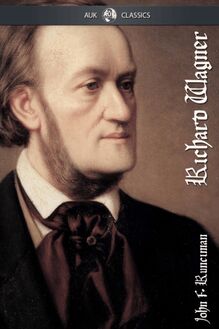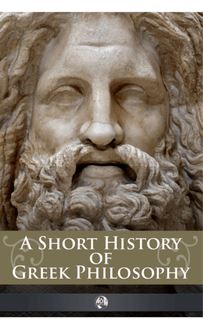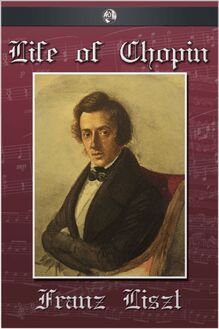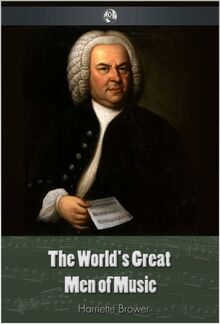Beethoven , livre ebook
79
pages
English
Ebooks
2010
Vous pourrez modifier la taille du texte de cet ouvrage
Obtenez un accès à la bibliothèque pour le consulter en ligne En savoir plus
Découvre YouScribe en t'inscrivant gratuitement
Découvre YouScribe en t'inscrivant gratuitement
79
pages
English
Ebooks
2010
Vous pourrez modifier la taille du texte de cet ouvrage
Obtenez un accès à la bibliothèque pour le consulter en ligne En savoir plus
Publié par
Date de parution
31 décembre 2010
Nombre de lectures
1
EAN13
9781849892759
Langue
English
Publié par
Date de parution
31 décembre 2010
Nombre de lectures
1
EAN13
9781849892759
Langue
English
Title Page
BEETHOVEN
A CHARACTER STUDY
By
George Alexander Fischer
Publisher Information
This electronic version published in 2010 by
Andrews UK Limited
www.andrewsuk.com
This edited version, including layout, typography, additions to text, cover artwork and other unique factors is copyright Andrews UK 2010. No part of this digital publication may be reproduced, stored in a retrieval system or transmitted in any form or by any means electronic, mechanical, photocopying, recording or otherwise without written permission of the copyright owner.
CHAPTER I
Early Promise
God acts upon earth only by means of superior chosen men.
- Herder: Ideas Toward a History of Mankind .
As life broadens with advancing culture, and people are able to appropriate to themselves more of the various forms of art, the artist himself attains to greater power, his abilities increase in direct ratio with the progress in culture made by the people and their ability to comprehend him. When one side or phase of an art comes to be received, new and more difficult problems are invariably presented, the elucidation of which can only be effected by a higher development of the faculties. There is never an approach to equilibrium between the artist and his public. As it advances in knowledge of his art, he maintains the want of balance, the disproportion that always exists between the genius and the ordinary man, by rising ever to greater heights.
If Bach is the mathematician of music, as has been asserted, Beethoven is its philosopher. In his work the philosophi c spirit comes to the fore. To the genius of the musician is added in Beethoven a wide mental grasp, an altruistic spirit, that seeks to help humanity on the upward path. He addresses the intellect of mankind.
Up to Beethoven’s time musicians in general (Bach is always an exception) performed their work without the aid of an intellect for the most part; they worked by intuition. In everything outside their art they were like children. Beethoven was the first one having the independence to think for himself - the first to have ideas on subjects unconnected with his art. He it was who established the dignity of the artist over that of the simply well-born. His entire life was a protest against the pretensions of birth over mind. His predecessors, to a great extent subjugated by their social superiors, sought only to please. Nothing further was expected of them. This mental attitude is apparent in their work. The language of the courtier is usually polished, but will never have the virility that characterizes the speech of the free man.
As with all valuable things, however, Beethoven’s music is not to be enjoyed for nothing. We must on our side contribute something to the enterprise, something more than simply buying a ticket to the performance. We must study his work in the right spirit, and place ourselves in a receptive attitude when listening to it to understand his message. Often metaphysical, particularly in the work of his later years, his meaning will be revealed only when we devote to it earnest and sympathetic study. No other composer demands so much of one; no other rewards the student so richly for the effort required. The making a fact the subject of thought vitalizes it. It is as if the master had said to the aspirant: “I will admit you into the ranks of my disciples, but you must first prove yourself worthy.” An initiation is necessary; somewhat of the intense mental activity which characterized Beethoven in the composition of his works is required of the student also. There is a tax imposed for the enjoyment of them.
Like Thoreau, Beethoven came on the world’s stage “just in the nick of time,” and almost immediately had to begin hewing out a path for himself. He was born in the workshop, as was Mozart, and learned music simultaneously with speaking. Stirring times they were in which he first saw the light, and so indeed continued with ever-increasing intensity, like a good drama, until nearly his end. The American Revolution became an accomplished fact during his boyhood. Nearer home, events were fast coming to a focus, which culminated in the French Revolution. The magic words, Liberty, Equality, Fraternity, and the ideas for which they stood, were everywhere in the minds of the people. The age called for enlightenment, spiritual growth.
On reaching manhood, he found a world in transition; he realized that he was on the threshold of a new order of things, and with ready prescience took advantage of such as could be utilized in his art. Through Beethoven the resources of the orchestra were increased, an added range was given the keyboard of the piano, the human voice was given tasks that at the time seemed impossible of achievement. He established the precedent, which Wagner acted on later, of employing the human voice as a tool, an instrument, to be used in the exigencies of his art, as if it were a part of the orchestra.
Beethoven’s birthplace, Bonn, no doubt proved a favorable soil for the propagation of the new ideas. The unrest pervading all classes, an outcome of the Revolution, showed itself among the more serious-minded in increased intellectuality, and a reaching after higher things. This Zeitgeist is clearly reflected in his compositions, in particular th e symphonies and sonatas. “Under the lead of Italian vocalism,” said Wagner, speaking of the period just preceding the time of which we write, “music had become an art of sheer agreeableness.” The beautiful in music had been sufficiently exploited by Mozart and Haydn. Beethoven demonstrated that music has a higher function than that of mere beauty, or the simple act of giving pleasure. The beautiful in literature is not its best part. To the earnest thinker, the seeker after truth, the student who looks for illumination on life’s problem, beauty in itself is insufficient. It is the best office of art, of Beethoven’s art in particular, that it leads ever onward and upward; that it acts not only on the esthetic and moral sense, but develops the mental faculties as well, enabling the individual to find a purpose and meaning in life.
***
Ludwig van Beethoven was born at Bonn, December 16, 1770. He came of a musical family. His father and grandfather were both musicians at Bonn, at the Court of the Elector of Cologne. The family originally came from Louvain, and settled in Antwerp in 1650, from which place they moved to Bonn.
This old city on the Rhine, frequently mentioned by Tacitus, older than Christianity, the scene of innumerable battles from Roman times up to the beginning of the nineteenth century , has much that is interesting about it, but is distinguished chiefly on account of having been Beethoven’s birthplace. It was for five centuries (from 1268 to 1794) in the possession of the Electors of Cologne. The last one of all, Max Franz, who succeeded to the Electorate when Beethoven was fourteen years of age, and who befriended him in various ways was, in common with the entire Imperial family, a highly cultivated person, especially in music. He was the youngest son of Maria Therese, Empress of Austria, herself a fine singer and well versed in the music of the time. The Elector played the viola and his chief interest in life seems to have been music. In Beethoven’s time and long before, the aristocracy led lives of easy, complacent enjoyment, dabbling in art, patronizing music and the composers, seemingly with no prevision that the musicians whom they attached to their train, and who in the cases of Mozart and Haydn were at times treated but little better than lackeys, were destined by the irony of fate to occupy places in the temple of fame, which would be denied themselves.
Ludwig van Beethoven, the grandfather of the composer, received his appointment as Kapellmeister at Bonn in March of 1733, then twenty-one years of age. A little more than a century afterward a statue was erected there in the Münster Platz to his illustrious grandson, Liszt being the moving spirit in the matter. The grandfather was in every way a worthy man, but he died when our composer was three years of age, and from that time poverty and hardship of all kinds was the portion of the family. Beethoven’s father was careless and improvident. His salary of 300 florins, about $145, was all they had upon which to live. The m other was the daughter of a cook and the widow of a valet de chambre to one of the Electors. She was kind-hearted, of pleasant temper and lovable disposition, and the affection between mother and son was deep and lasting. The father was stern, and a strict disciplinarian, as so often happens in such cases. He was determined that the son should do better than himself, being willing to furnish the precept, if not the example.
Reared in this school of adversity the boy had a hard life. His father was his first teacher, teaching him both violin and clavier. He began with him as early as his fourth year; he seems to have been aware of the boy’s ability, but had no consideration, and was a hard taskmaster. Before he was nine years of age, however, the boy’s progress was so great that the father had no more to teach him.
In those times the musical life centered about the Court. Beethoven studied the organ under the court organist, Van den Eeden, an old friend of his grandfather’s. Van den Eeden was succeeded shortly after by Christian Neefe, and Beethoven, then eleven years of age, was transferred to him. Neefe had an important bearing on Beethoven’s life. He was in his best years, thirty-three, when he began teaching him, and was a thorough musician, who had had a varied experience before assuming this post. He was a university man as well, and it was fortunate for Beethoven in every way that he was brought in ch


